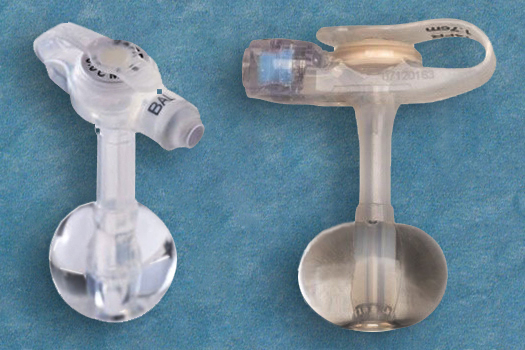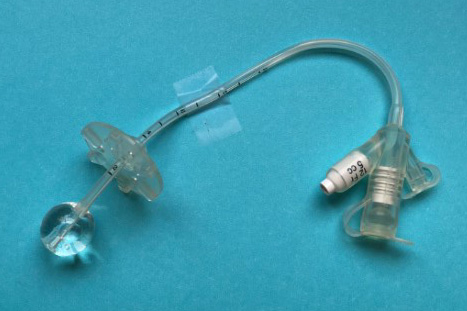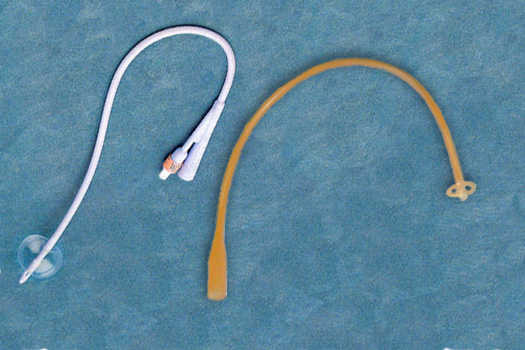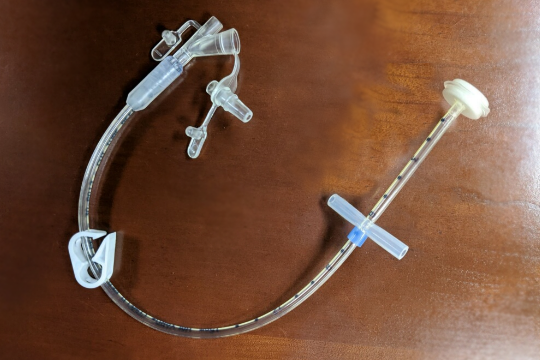G-Tube Care
Urgent Issues
Call Pediatric Surgery at (585) 275-4435 if your child's tube has been in for less than 3 months.
Call Pediatric Gastroenterology/GI at (585) 275-2647 if your child's tube has been in for longer than 3 months.
For these issues:
- The tube falls out less than 3 months after surgery
- Your child has a temperature higher than 101 degrees Fahrenheit and the wound looks different
- Your child is throwing up green (bilious) output
- Your child continues to throw up with feeds AND has fewer wet diapers or urine output
Non-Urgent Issues
Many complications do not require a trip to the Emergency Department. See the troubleshooting guide.
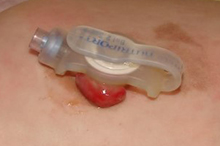
Granulation Tissue
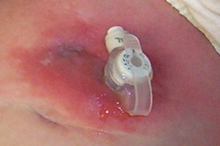
Skin Infection
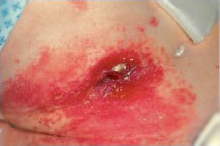
Yeast Infection
- Granulation Tissue
- Skin Infection
- Leaking Around G-tube Site
- G-tube is Clogged
- Yeast Infection
What is a Gastrostomy Tube, or G-Tube?
A gastrostomy tube (also called a G-tube) is a soft tube that is placed into your child’s stomach through a small incision (cut) in their belly. The G-tube supplies nutrition, fluids, and medicines that your child needs to grow and gain weight.
The G-tube can stay in place as long as your child needs it. If your child’s health improves, we can remove the G-tube at a later time.
Feeding Tube Family Support
Trained volunteer caregivers serve as mentors to support parents beginning their Feeding Tube journey. They connect virtually—by phone, text, email, or Zoom.
When is a G-Tube Needed?
Children may need G-tubes for a many reasons, including:
- Swallowing or sucking problems. Such problems might be the result of premature birth (being born too early), an injury, a developmental delay, or other condition. Developmental delay is when your child is not progressing at the same rate as other children the same age.
- Growing more slowly than normal or having trouble gaining weight.
- Congenital (present at birth) problems of the mouth, stomach, intestines, or esophagus (the part of your body that carries food or liquid from your throat to the stomach).
- Medical conditions that require more calories than a child can take in by mouth.
- Extreme problems taking medicines.
Learn more about what to expect if your child needs a G-tube.
